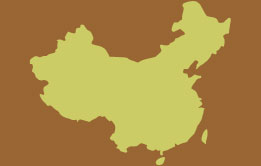In recent years, trends toward press freedom in China — such as the growth of an increasingly independent commercial media, the spread of the Internet, and policies promoting reform in the national media landscape — have continually bumped against the repressive tendencies of the one-party state and the silencing forces of corruption.
In 2003, the government initiated widespread reforms leading to greater commercialization of the media and closure of many government-supported media outlets. Yet, media blackouts of politically-sensitive issues, imprisonment of journalists, and closure of prominent publications serve as evidence that President Hu Jintao’s regime is likely to maintain much of the government’s long-standing control of the nation’s press. In 2003, a media blackout of the politically-sensitive SARS epidemic may have added to the death toll of nearly 800. Other instances of censorship include the arrest and deportation of journalists covering the plight of North Korean refugees and suppression of reporting on the prevalence and spread of AIDS in China. Despite relative lenience last year, early 2004 saw a wave of arrests of newspaper editors. With dozens of journalists behind bars, China has long held the title of the world’s leading jailor of journalists.
Alongside state censorship, corruption has helped to ensure that press freedom remains elusive. Although Chinese customers demand more independent and investigative news, both private citizens and government officials implicated in investigative reporting intimidate and sometimes murder journalists. In 2003, journalism came after mining and police work as the third most dangerous career in China, and prosecutions of the attackers is quite rare.
Still, those promoting press freedom push on. Despite constraints on Internet essayists and service providers, Web reporting has spurred coverage in the mainstream press of neglected issues like corruption and industrial accidents. And though its media may get limited exposure in the mainland, Hong Kong has long remained an open environment for media and free speech generally, with more aggressive reporting of issues, and public political protests of speech-stifling legislation.
- Previous: Bangladesh
- Next: Cuba



